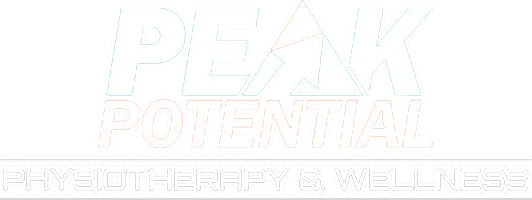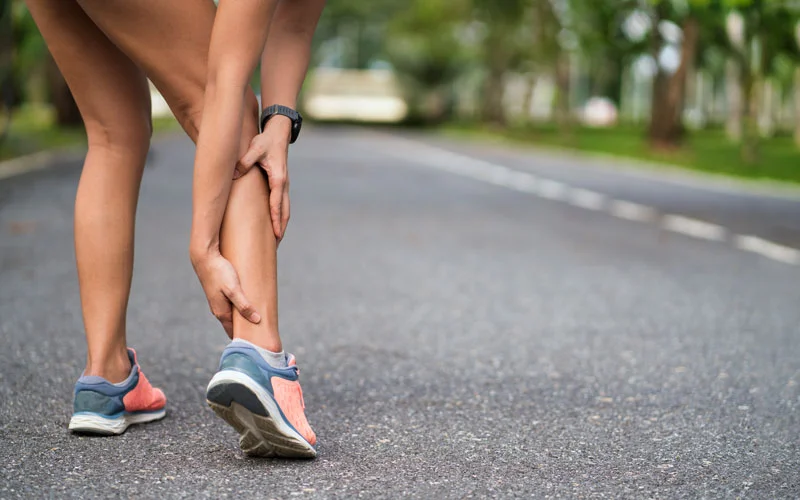Muscle cramps effect nearly all athletes at one time or another. They cause pain, frustration, and slowl you down.
Runners are at the top of the list, since cramps usually occur in the muscles used most during a workout. In one study of Marathon runners, over 95% of cramps occurred in the leg muscles.
You are far more likely to cramp during a race than when training since you are pushing yourself harder. In addition, you are more susceptible at the end of the race when you are most fatigued.
What is a muscle cramp?
The dreaded muscle cramp occurs when a muscle becomes shortened and locked into a painful spasm. The spasm is uncontrollable, involuntarily, and sustained. Basically, it stays contracted when it should be relaxing.
If it is out of our control, then is there anything we can do to decrease the occurance or stop the cramps once they start?
There is debate as to the true cause of the sustained spasm and many opinions as to what to do about it. A multi factor approach (combining various research and anticdotal findings) seems most logical to stop a cramp in it’s tracks.
Here are 5 Ways to Stop Cramps and Keep Running:
1. Stay Hydrated
Consuming fluids both during and after training is vital!
Newer research indicates dehydration may not be the true cause of cramps, but the benefits of hydration are widespread. It is proven though that consuming adequente fluids during exercise will improve performance and muscle function.
2. Mineral Blance
When it comes to control of muscle contraction and relaxation, calcium and magnesium are important minerals. They work together to coordinate muscle contraction relaxation responses in the muscles.
Too little potassium, calcium or magnesium in your diet can contribute to leg cramps. These can be depleted with certain medications for fluid retention and high blood pressure. In addition, definciency in these minerals effects muscular strength and athletic performance.
3. Stretching
A regular stretching program targeted at muscles prone to cramping can reduce the onset of exercise associated muscle cramps. This must include static stretches held for at least 30 seconds to lengthen muscle fibers and alter spinal neural reflexes that regulate muscle contraction and relaxation.
At the onset of a cramp, evidence indicates light passive stretches can help them go away faster than rest alone. The gentle pull triggers the brain to send signals to relax the muscle.
4. Specific Training
Mucles that are not sufficiently trained for the exercise being undertaken are more likely to cramp. Build training intensity gradually and pace yourself appropriately for your fitness level to not prematurely overload the muscle.
Most cramps happen when you push yourself harder than you are used to. Therefore, training needs to be of similar intensity and duration as the actual race. To perform on race day, your muscles must be used to this type of vigorous activity.
5. Adequate Recovery
Since muscles usually cramp when they are fatigued, rest and recovery are critical to prevention. Schedule both training sessions and competitive events so that you are fresh and well rested at the start of each.
During rigorous training or race season, sports massages can be very beneficial in speeding up the recovery process. A skilled practitioner will promote muscle relaxation and accelerate the disposal of exercise metabolites from the muscle cells.
Don’t Forget the Basics!
The basic aspects of good health will facilitate the prevention of muscle cramps. Do you have your basics covered with balanced nutrition, vitamin/mineral essentials, hydration, and sleep?
Depending on the activity, duration, and environment, the body may requires additional assistance from a eletrolyte drink. These aid in electrolyte balance with various vitamins and minerals, as well as increase muscle glycogen levels with carbohydrates.
Warning: Don’t just grab any beverage labeled “sports drink”. Quality is key when replenishing these vital nutrients. Look for a equal balance of sodium and potassium, as well as calcium, magnesium, amino acids, and carbohydrates.
If you need guidance to negotiate nutrition, hydration, recovery, or muscle cramps, call and speak with one of our Doctors of Physical Therapy today! Just click HERE to get that conversation started.


